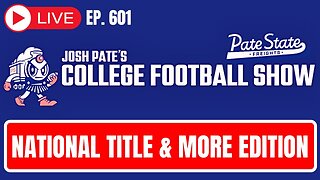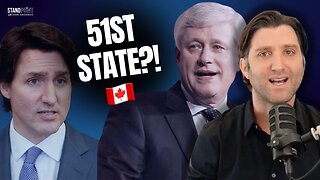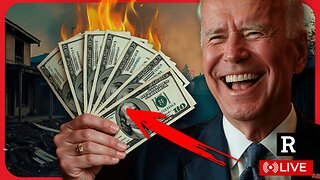Premium Only Content

5 Big Lies about precious medals!
BULLION. In its usual acceptation, is uncoined gold or silver, in bars, plates, or other masses. 1 East, P. C. 188.
2. In the acts of Congress, the term is also applied to copper properly manufactured for the purpose of being coined into money. For the acts of Congress, authorizing the coinage of bullion for private individuals, see Act of April 2, 1792, s. 14, 1 Story, 230; Act of May 19, 1828, 4 Sharsw. cont. of Story's Laws U. S. 2120; Act of June 28, 1834, Id. 2376; Act of January 18, 1837, Id. 2522 to 2529. See, for the English law on the subject of crimes against bullion, 1 Hawk. P. C. 32 to 41
——->Finding Lost Goods<———
The discovery of Personal Property that has been unintentionally removed from its owner's possession through his or her neglect or inadvertence.
The fact that an owner has involuntarily parted with the property and that he or she is ignorant of its location sufficiently establishes that the property is lost. Mislaid property is property that an owner intentionally places somewhere so that it can eventually be found again, but he or she subsequently forgets where it was placed. The right to possess the property rests in the issue of whether the property is to be considered lost or mislaid. This issue must be determined upon examination of the particular facts and circumstances of any given case.
Abandoned property is property to which the owner has purposefully relinquished all rights as an owner thereto. Since such property is ownerless, it can be owned by the first person who takes it with the intent to claim it as his or her property.
The place where the property is discovered is an important factor in determining whether it is lost or mislaid.
When property is in someone's possession, it cannot be found within the meaning of lost property. An article in the possession and protection of the owner of the place where it is found is not legally considered lost. Similarly, an owner of land is considered to have possession of all articles on the land even though he or she may be unaware of their presence. If the finder of lost property is an employee of the owner of the land, the owner's right to custody of the property is superior to that of the employee.
Property found in a public or semipublic place—where the public is ordinarily invited and expected to be—may be considered lost, since the owner or manager of the location does not represent its owner.
Treasure trove is any gold or silver in coin, plate, or bullion hidden in the earth or other private place by an unknown owner for a long time. The property is not treasure trove unless the identity of the owner is unascertainable. Ordinarily, the treasure must be in the form of coin or bullion, but it may also include paper currency—particularly when such currency is discovered with both these precious metals.
An individual who finds lost property does not acquire absolute ownership of the property. In order to obtain title to, or rights in, the lost property, the finder must intentionally take possession and control over it.
The individual who acquires possession of a lost or mislaid article has superior rights to the item over anyone except the true owner. This person is only the apparent owner. The finder's title to the property may be forfeited upon discovery of the true owner, whose title in it is unaffected by the fact that the article has been lost. A finder's title is contingent upon the potential discovery of the true owner. He or she may not, therefore, transfer title to another individual.
If the true owner of lost property dies before his or her identity is discovered, the title and right to the lost article passes to the executor or administrator of the owner's estate for distribution to his or her heirs pursuant to the terms of his or her will or the laws of Descent and Distribution.
As between the finder of treasure trove and its true owner, the true owner prevails. It has been held, however, that the finder of treasure trove has greater rights to it than the heirs of the individual who concealed it.
The true owner of lost property is responsible for paying all reasonable expenses incurred by a finder in the discovery and preservation of lost property. The finder may also be entitled to a small compensation for his or her time and effort; however, the finding party does not acquire a lien against the property. The finder cannot receive reimbursement for his or her expenses and time with use of the property, nor is the individual entitled to a reward for finding it unless one has been offered.
Some state statutes provide that a finder of lost goods is entitled to recover expenses that were necessary to preserve the property and to a reward for holding it. These statutes are consistent with statutes providing that the finder must return the property to its true owner and that a finder who is aware of the identity of the true owner is guilty of Larceny if he or she keeps the goods. Such statutes are enacted in order to aid the finding of lost property.
An individual who finds and takes possession of lost property ordinarily has the right to possess it over everyone but the true owner. Some statutes provide that if the true owner neglects to appear and claim the property within a certain time period after the finding of the article has been published in a local newspaper, the finder is entitled to retain part of the property or part of its value while the remaining portion passes to the state, or one of its departments or agencies.
The finder of treasure trove, under early Common Law, took title to it over everyone except the true owner. This doctrine was changed in England by a statute that granted title to the crown, subject to the claims of the true owner. In the United States, the law regarding treasure trove has largely been combined into the law governing lost property. Some cases still hold, however, that the old treasure trove law is not merged into the statutory law relating to lost property. The common law of early England has also been held to apply in the absence of a statute governing treasure trove.
In either instance, the title to treasure trove belongs to the finder over all other people except the true owner, unless otherwise provided by statute. If there is a conflict as to ownership between the true owner and the state, the owner is entitled to treasure trove.
-
 1:03:22
1:03:22
Man in America
10 hours ago🚨 RED ALERT! SmartLA 2028, C40 Cities, CA Fires & the UN 2030 Blueprint
53K17 -
 59:39
59:39
Flyover Conservatives
23 hours agoLeft for Dead: The Dark Secrets Behind Clinical Trials Exposed - Brianne Dressen, React19 | FOC Show
39.7K -
 5:28:19
5:28:19
Wahzdee
10 hours agoAm I Too Old to Keep Up? New Game? 🤔🎮 - Warzone/Kompete Days! S1E13
55.6K4 -
 1:08:07
1:08:07
Josh Pate's College Football Show
6 hours ago $1.86 earnedNational Title Prediction | Clemson’s Big Moves | CFB’s Golden Age | USC Childhood Hatred
34.3K -
 1:00:57
1:00:57
The StoneZONE with Roger Stone
4 hours agoShould Trump Pardon Corrupt Mayor Eric Adams? | The StoneZONE w/ Roger Stone
28.7K9 -
 4:09:51
4:09:51
SwitzerlandPlayIT
7 hours ago🔴 LIVE - RANDOM GAMING - Kingdom of Amalur?
45.9K2 -
 31:50
31:50
Standpoint with Gabe Groisman
1 day agoEp. 64. Canada: the 51st State?!
40.5K9 -
 57:28
57:28
Sarah Westall
6 hours agoCabal Loses Control, Crackdown Back Fires & Day of Reckoning Coming w/ Sam Anthony
66.2K13 -
 1:10:22
1:10:22
Edge of Wonder
6 hours agoDreams & Laser Experiments Prove the Matrix Code Is Real
31K5 -
 1:18:05
1:18:05
Redacted News
9 hours agoBREAKING! BIDEN'S MASSIVE MIDDLE FINGER TO AMERICANS, TRUMP AND PUTIN PLAN PEACE TALKS | Redacted
123K240